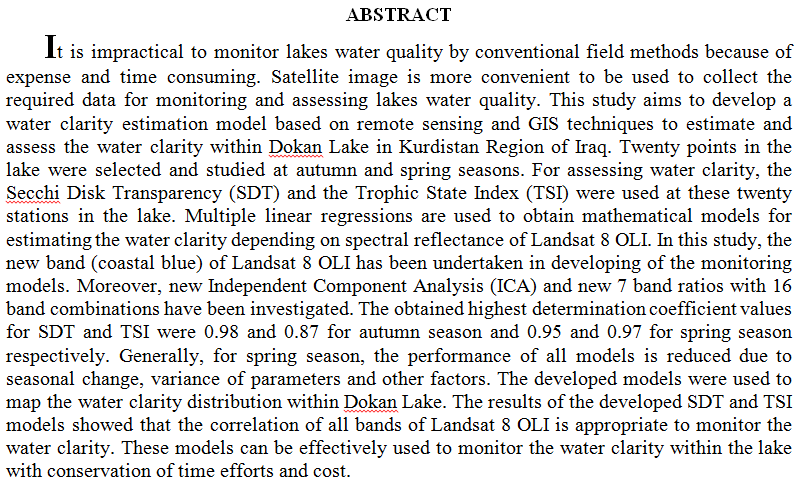
Background: Restoration of the gingival margin of Class II cavities with composite resin continues to be problematic, especially where no enamel exists for bonding to the gingival margin. The aim of study is to evaluate the marginal leakage at enamel and cementum margin of class II MOD cavities using amalgam restoration and modern composite restorations Filtek™ P90, Filtek™ Z250 XT (Nano Hybrid Universal Restorative) and SDR bulk fill with different restoratives techniques. Materials and method: Eighty sound maxillary first premolar teeth were collected and divided into two main groups, enamel group and cementum group (40 teeth) for each group. The enamel group was prepared with standardized Class II MOD cavity with gingival margin (1 m
... Show MorePolitical terminology differs from any other type of terminology not only in the presence of political terminology, but also in content, structure, functions and the recipient who perceives it. Taking this into account, it is inappropriate to consider the semantic difficulties of translating Russian-language political terms solely at the semantic level. In our opinion, it is inextricably linked with the lexical, syntactic and grammatical levels. If we combine all 4 levels, then the following translation techniques can be distinguished: lexical borrowing (transcription / transliteration, tracing); modulation; generalization / concretization; omission / addition; descriptive translation; conversion [Komissarov 2013]. One of the most
... Show MoreThe research aims to achieve market share requirements and reach the targeted competitive price through the application of management accounting techniques represented by continuous improvement technique and target costing under an Activity Based Cost (ABC) system and Activity Based Management (ABM), In Muthanna Cement Company to reach the rationalization of the cost of the product and maintain the required quality and improve the profitability of the company.
The problem of research has emerged in the inability of local firms to enter into effective competition with other companies operating in the same economic sector, Because of the high cost of its products, Which led to the sale of the product at prices below its cost, and t
... Show MoreThis study is conducted to verify the efficienecy of local Ninivite rock when used in the treatment of drinking water in plants operating currently in the country in order to develop the situation of these stations to cope with the increase in population. Also, this will limit the pollutian which are increasing in the country's rivers.
(Euphrates and Tigris). These rivers are the sources to feed all water treatment plants in the country. The idea is the develop or the modify these stations by replacing part of top layer of sand filters used in these stations with Ninivite rock to operate as filters composed of two medium. The efficiency of this rock is compared with other materials used successfully worldwide in this area, such a
... Show Morethe student of the structure of the city and its constituent elements will clearly sense the invisible relationships that underlie the different forms of urban activity, which in turn are defined by the generality of the urban patterns in that city, which will vary clearly according to the location in the city. These relations will be embodied in their true form in the interactions between the different uses of the earth, and the change that will result from their regularity in the form of entities in independent groups, which may share with each other a component of it.
Therefore, the process of controlling the functional interactions between the uses of the urban land and the awareness of t
 (2)
(2)
The present work aims to study the possibility of utilization a forward osmosis desalination process as an alternative method to extract water from brine solution rejected from reverse osmosis process.
Experiments conducted in a laboratory–scale forward osmosis (FO) unit in cross flow flat sheet membrane cell yielded water flux ranging from (0.0315 to 0.56 L/m2 .min) when using CTA membrane,and ranging from (0.419 to 2.785 L/m2 .min) for PA membrane under 0.4 bar. Two possible membrane orientations were tested. Sodium chloride with high concentrations was used as draw solution solute. The effect of membrane orientation on internal concentration polarization (ICP) was studied. Two regimes of ICP; dilutive and concentrative were desc
 (5)
(5)
 (1)
(1)
Most of the water pollutants with dyes are leftovers from industries, including textiles, wool and others. There are many ways to remove dyes such as sorption, oxidation, coagulation, filtration, and biodegradation, Chlorination, ozonation, chemical precipitation, adsorption, electrochemical processes, membrane approaches, and biological treatment are among the most widely used technologies for removing colors from wastewater. Dyes are divided into two types: natural dyes and synthetic dyes.
 (4)
(4)
The useful of remote sensing techniques in Environmental Engineering and another science is to save time, Coast and efforts, also to collect more accurate information under monitoring mechanism. In this research a number of statistical models were used for determining the best relationships between each water quality parameter and the mean reflectance values generated for different channels of radiometer operate simulated to the thematic Mappar satellite image. Among these models are the regression models which enable us to as certain and utilize a relation between a variable of interest. Called a dependent variable; and one or more independent variables
